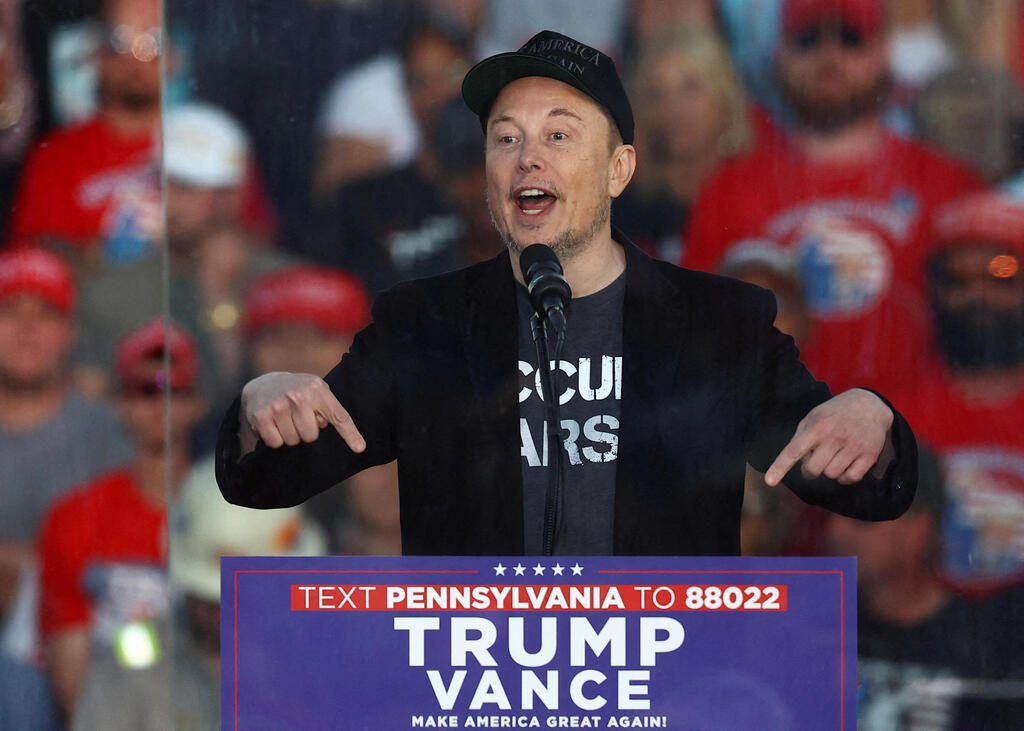If there's a headline for Trump's victory as the 47th president, it might read, "America's Billionaire Cabinet." Why? Because for the first time since the 19th century, an era known as the Gilded Age, billionaires wield unprecedented influence over the identity and policy direction of the American presidency.
In a defining moment in U.S. history, one billionaire (Elon Musk) blatantly helped another (Donald Trump) secure election victory. While billionaires have always dabbled in governance, Washington's political landscape traditionally empowers politicians who don't take kindly to outsiders meddling in their affairs.
The billionaire hive
Backing Musk is a hive of tech moguls: Mark Zuckerberg, who significantly curtailed political posts on Facebook; Jeff Bezos, who blocked the Washington Post from publishing support for Kamala Harris; Peter Thiel, a long-time Trump supporter; and Oracle founder Larry Ellison, alongside Oracle CEO Safra Catz, an Israeli-American. While figures like Tim Cook, Satya Nadella and Larry Page lean toward the Democrats, the "hive members" who aided Trump's path to victory clearly align with conservative values.
Musk and Thiel are prominent libertarian figures. They champion crypto, artificial intelligence, selling technology to foreign militaries and a brand of capitalism liberated from all regulation, which they see as a burden on their businesses. They enjoy sharing their views, unlike Zuckerberg, Bezos and Ellison, who shy away from late-night shows or gossip columns but gladly voice their opinions when asked, aligning with the Republican Party's conservative stance.
Peter Thiel might be the brains, but Elon Musk is the driving force of Trump's Silicon Valley hive. Known worldwide, Musk's adventures are no secret. But did you know he's actually South African, from a family that owned a diamond mine, with a successful model mother and staunch apartheid supporters? Musk lived in apartheid South Africa until age 17, then moved to Canada and later the U.S.
Trump thanks Elon Musk after victory
(Video: Fox News)
Thiel, too, is a former South African with a similar background. So is David Sacks, a lesser-known figure from the "PayPal Mafia" (a group of entrepreneurs and tech experts who founded PayPal and later spearheaded other successful tech companies) and Paul Furber. Although Furber isn't a billionaire, he's an obscure software engineer allegedly behind the QAnon conspiracy that Trump extensively exploited in his campaigns.
It's fascinating that three key tech figures, all white men in their fifties who grew up during South Africa's apartheid era, are dedicated Trump supporters. Musk, for instance, hails from a family with extreme views. His Canadian mother, Maya Haldeman, has a unique political history.
Musk's maternal grandfather, Joshua Haldeman, was part of the technocracy movement, which aimed to replace democracy with technocracy as a form of government. He was also in the Social Credit Party of Saskatchewan, a conservative-Christian party known for its populist, capitalist and notably antisemitic members. Haldeman boldly claimed that white South Africa led the fight against the international conspiracy of Jewish bankers and other "people of color."
Contrastingly, Musk's father, Errol Musk, wasn't conservative. He began as an electromechanical engineer, became an independent local politician in 1972 and joined South Africa's progressive-liberal party. He was later elected as Pretoria's representative in the 1981 elections.
Peter Thiel, however, was born in Germany and moved to South Africa with his family due to his father's diamond mine job. Later, his family immigrated to the U.S., settling in California. Like Musk, Thiel was profoundly influenced by life in the divided nation. Interestingly, the primal fears of white South Africa that African residents would one day revolt against them resonate with Trump's infamous statements like "American girls being raped by wild, lawless immigrants."
Another South African phenomenon that might explain Musk and his associates' libertarian views is their deep distrust and disdain for governments. Various South African regimes—from apartheid to the African National Congress—created severe social and economic crises in the country. As a result, many emigrants view the government system as a demon to be fought.
This perspective makes the QAnon conspiracy, which claims that the U.S. government is run by a shadowy cabal of Satan-worshipping pedophiles, more comprehensible—at least in its origin. Regardless, Musk, Thiel, Sacks and their cohorts are poised to significantly influence Trump's policies over the next four years. Unlike Steve Bannon and the conservative-Christian right of his first presidency, Trump's second term might resemble a technologists' utopia or dystopia.
Get the Ynetnews app on your smartphone:






